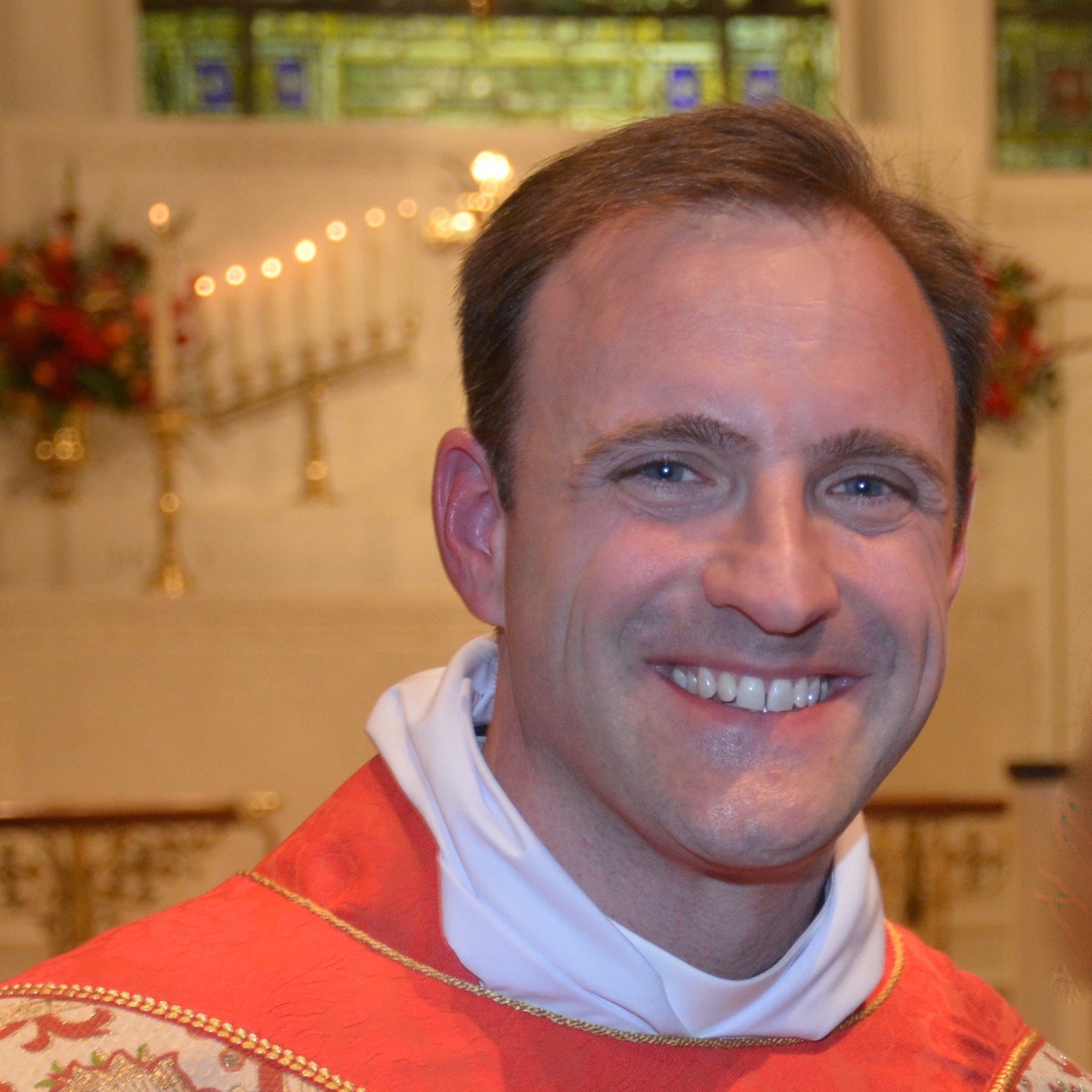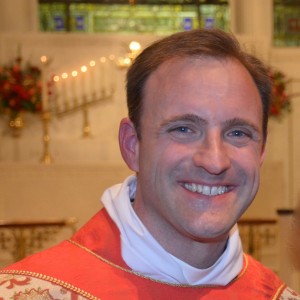FROM THE ASSISTANT RECTOR – July 17, 2020

 When Jacob awoke from his mystical vision, seeing a bridge connecting God’s life to his, he immediately grabbed what was at hand, a stone, and poured some oil over it. The act of marking God’s presence is an important one, but of course, he saw his vision within himself, so I wonder that he didn’t pour the oil over himself to acknowledge that he was a house in which God dwells.
When Jacob awoke from his mystical vision, seeing a bridge connecting God’s life to his, he immediately grabbed what was at hand, a stone, and poured some oil over it. The act of marking God’s presence is an important one, but of course, he saw his vision within himself, so I wonder that he didn’t pour the oil over himself to acknowledge that he was a house in which God dwells.
I love our liturgies and miss the nearness and connectedness of worshiping together. One liturgical act I most miss is laying hands for healing in the Celtic Eucharist. I smear a little oil on the recipient’s forehead, marking them with a cross and saying, “I lay my hands upon you, a beloved child of God, in the name of God…” I miss that act marking in word and deed; announcing the reality of your beloved-ness. I have hope that one day we will resume those acts of participating together in God’s life, grace, and presence through liturgical sacraments.
Is it so that God’s presence only is in that beloved and sacred space? We openly acknowledge that God is everywhere, yet when we are gathered in that place for worship, does it not feel as if God is more readily and tangibly present? Maybe we grew too used to encountering God in that particular place. Maybe during this time of wandering in the desert—a time of disruption and confusion, of grieving what’s been lost, of awakening to an unfamiliar landscape; and longing, no, clamoring for the life giving water of community and bread of relationship—maybe we will renew our trust in God’s promises and learn to see where God is. For where is God not?
We are not accustomed to losing control and to not understanding when or why things happen. This is taxing and burdensome to us, and I find the disruption sometimes to be unbearable. We are in the desert, yet our faith gives us ways of renewal, refreshment, even resurrection:
“ The practice I’m focusing on is self-love and love of neighbor. We tend not to be very good at either one, but during this time of isolation, we have equal opportunities to rest and to heal, to love and be loved. . . . ” Barbara Holmes (click to read her full reflection) .
In what ways can you practice loving yourself? Maybe as a child there was someone who saw and loved you in the way that made your heart glow simply to be near them, knowing you were seen, accepted, totally loved. How can you stop now and practice loving yourself in that way, as God loves you? And, how can you stop and practice loving God in that way? Surrendering your attention for a little while each day to rest in God’s presence. Intentionally practice loving yourself, and loving God. And then how in this desert time of growing social and personal need, how can you practice loving your neighbor as you love yourself and as God loves?
Practicing acts of love will recharge the well of your soul and awaken you to know and proclaim, as Jacob did, that God is in this place, dwelling within you, as promised from the beginning and unto eternity. Mark that awakening. Proclaim God’s love by how you love God, self, and neighbor.
May all of us come to see and know that the Lord, indeed, is in this very place! May Christ, who gives the water of life, change our desert into a verdant land of life-giving love for all God’s children.
You are a beloved child of God. God sees you and loves you. Always. Now. Forever.
Get to practicing,
John



